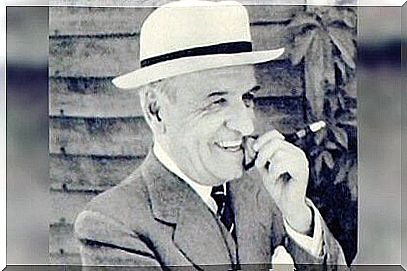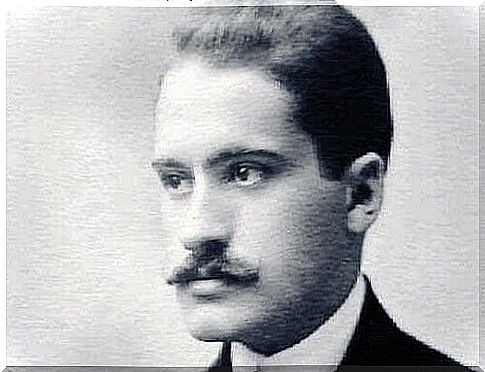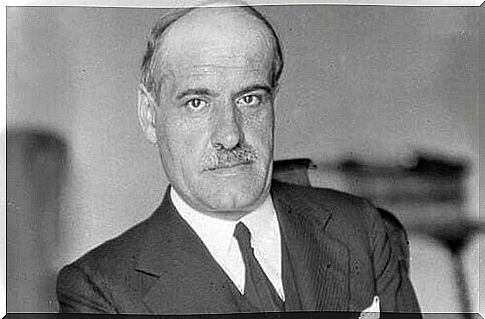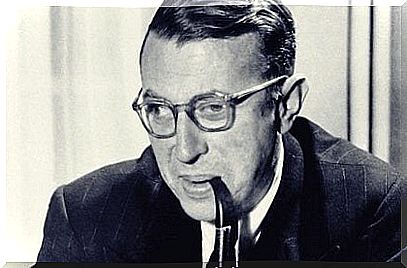José Ortega Y Gasset: Biography Of A Regenerationist Philosopher

José Ortega y Gasset was one of the most prominent Spanish philosophers. Intellectual, essayist, journalist, orator… His liberal and regenerative speech contained the essence of perspectivism and vital reason. He belonged to the Noucentisme movement and to the 14th generation, followed by figures like Pablo Picasso and Juan Ramón Jiménez.
His most representative works, such as L ‘ Spain invertebrée (1921), The dehumanization of art (1925) and especially The revolt of the masses (1930) described a very important page in our history and in this social and intellectual situation that was going on. 20th century Europe. Ortega reflected the eruption of these liberated masses who finally put the elite aside to express themselves through art, civic values and a liberal philosophy.
Let us not forget that this famous philosopher developed his work in an extremely complex context. The rise of communism faced that of fascism. Trade unionism faced nationalism and the latter faced the popular class. The one that was beginning to make a place for itself through cultural movements and consumption.
“I am me and my circumstance, and if I do not save it, I do not save myself”. This sentence so representative of José Ortega y Gasset tried to explain the influence of this time. Even if the human being cannot control the circumstances that accompany his life, he always finds a personal space which allows him to be responsible and to generate change.

José Ortega y Gasset: biography of a liberal philosopher
José Ortega y Gasset was born into a well-to-do family in Madrid in 1883. His mother was Dolores Gasset, daughter of Eduardo Gasset, founder of the newspaper El Imparcial. His father, José Ortega Munilla, will work as a director for this newspaper. This focus was strongly linked to philosophy, intellectualism, journalism and politics.
Perhaps this is why José Ortega y Gasset did not doubt his personal path. He studied philosophy and letters in Bilbao and completed his studies in Berlin. After graduation he started working as a professor of psychology and ethics, until he passed a competition and became a professor of Metaphysics at the University of Madrid.
It was from 1920 that his life took another direction. He founded the Revista de Occidente. It was a protest and liberal publication. Gasset wanted more innovative and open intellectual currents to develop in Spain. A little later, it will include the translations of the new philosophical tendencies of Edmund Husserl or Bertrand Russell.
José Ortega y Gasset’s goal was as concrete as it was high. He wanted his country to be able to breathe this innovative air that we already breathed in Europe. Let the people wake up and rebel against conservatism.
José Ortega y Gasset’s political stage
José Ortega y Gasset was elected deputy during the Second Republic. With Marañón and Pérez de Ayala, he founded the “Agrupación al Servicio de la Républica”. He kept this post while still maintaining high hopes and then ended up feeling certain differences with the course that the Republic was beginning to follow. And everything changed in 1936 with the Civil War.
At that time, the only possible solution was exile. José Ortega y Gasset sought refuge in France, the Netherlands, Argentina and Portugal for about 10 years. His return in 1945 allowed him to know many intellectuals who shared his ideas. In 1948 he founded the Instituto de Humanidades with Julián Marías.

From that moment his figure stood out in the Spanish cultural panorama. He was a professor of philosophy, developed his liberal ideas in several journals, books and essays. He also founded the newspaper El Sol (1917), the magazine España (1915) and the Revista de Occidente (1923).
José Ortega y Gasset was also this very important figure who inspired the generation of 27 a little later. His charisma as a regenerationist intellectual, his personal ideas and his philosophical principles have crossed many borders, and not only in Europe. He was also very well known in Latin America.
He died in 1955 at the age of 72 in his home in Madrid.
The key work of José Ortega y Gasset: The revolt of the masses
José Ortega y Gasset was attached to three basic currents. The first was noucentisme, a movement for cultural renewal. The second was perspective (a concept developed by Friedrich Nietzsche who asserted that there is no one truth. We all have our own vision).
The third point of view that determined his work is an idea that he himself developed. It was about vitalism, an idea of inevitable relation between the person and his reality. These pillars were essential when writing one of his most representative works, The Revolt of the Masses (1930).
The danger of a community that does not reason
An essential aspect that we notice on every page of The Revolt of the Masses is the end of conservatism and the start of a new thing that is not as positive as we might think. With this regeneration brought about by modern life, a series of challenges arise: the person, this modern and apparently liberated citizen, is then obliged to understand.
- In the first place, the concept of “mass” has nothing to do with the term Marxists use.
- The mass, for Ortega y Gasset, is the set of people who have deindividualized. In other words, they are no longer isolated or isolated figures. It is a community that is often conditioned more by its emotions than by its reason.
- These masses are already appearing in the new democracies of the time. Therefore, even though authoritarianisms are a thing of the past, new dangers arise. Because communities can also be alienated by other figures in public life.
- In the book, Gasset referred to the acts of vandalism that took place in France in the late 1930s. Thousands of young people took to the streets to burn cars, to express their anger by being guided or motivated by others. people who sought to “awaken the masses”.
A very present heritage
The revolt of the masses is a key work of the philosopher José Ortega y Gasset. Many ideas emanated from it and many are still relevant today. They invite us to reflect on one thing he wanted to convey to us: if we act as gregarious groups, democracy will be threatened.
We are part of a historical and social context from which we cannot escape. However, we have to separate ourselves from those masses who act out of instinct. We must act as individual beings, responsible and attentive to those who wish to hinder our freedom.









